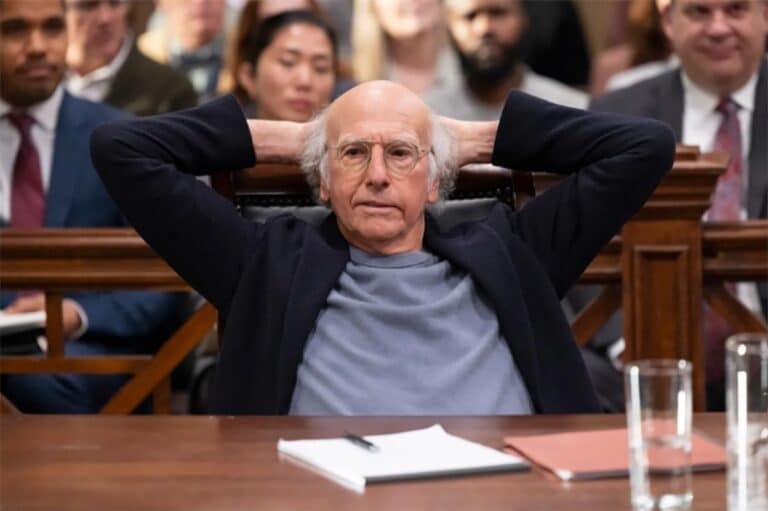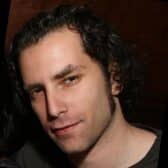
This article contains spoilers for the series finale of “Curb Your Enthusiasm.”
There is a Jewish saying, “Until 120,” meaning one should have a long life and live to that age. On Sunday night, “Curb Your Enthusiasm,” one of the best comedies of all time concluded with its 120th episode “No Lessons Learned.”
In a previous article, I predicted that a possible ending to “Curb Your Enthusiasm” might have Larry David going to the slammer. I was right — kind of.
“Curb Your Enthusiasm” began on October 15, 2000, after a special ran the previous year.
Larry David, known for his role in creating “Seinfeld” alongside Jerry Seinfeld and serving as the inspiration for the character George Costanza, stepped into the spotlight with “Curb Your Enthusiasm.” Some thought he might get kidnapped because he told Jimmy Fallon he wouldn’t mind it.
The ‘Curb’ finale mirrored the ‘Seinfeld’ finale in several ways.
In the “Seinfeld” finale, Jerry (Jerry Seinfeld), George (Jason Alexander), Elaine (Julia Louis-Dreyfus), and Kramer (Michael Richards) were put on trial under the Good Samaritan Law for not helping a mugging victim.
The trial featured testimonies from characters they had wronged, highlighting their moral flaws, and ended with the four being sent to jail. The episode concluded with Jerry and George discussing the buttons on a shirt, a callback to the very first episode.
In the “Curb” finale, Larry finds himself on trial for violating Georgia’s “Election Integrity Act” by giving water to Auntie Rae in a voting line. The trial showcases various individuals recounting terrible stories about Larry.
These include Larry refusing to jump off of a ski lift with Rachel Racheli Shuli Hamda Sarala Heineman, leading her to jump 45 feet and injure her knee; accusations of Larry stealing shoes from a Holocaust Museum, committing bribery, being suspected of an inappropriate act with a blow-up doll (which was false), and accidentally urinating on a painting of Jesus.
In a nod to “Seinfeld,” Jerry Seinfeld himself appears in the “Curb” finale, and Leon mentions that he’s been watching old episodes of the show. Larry is found guilty and, while in his prison cell, he discusses how excess fabric in a pair of pants can give the illusion of something else, echoing a conversation he had with his wife, Cheryl, in the pilot episode titled “The Pants Tent.”
But there’s a twist at the end that I didn’t see coming.
Susie and Jeff, and Ted Danson
In the finale, Jeff’s attempt to do something nice for Susie backfires, leading to yet another argument between the couple.
Ted Danson, in a familiar pattern, steals the spotlight at a protest, reminiscent of when he dated Cheryl despite Larry’s disapproval. Interestingly, in real life, presidential candidate Robert Kennedy Jr. mentioned on a podcast that he had to seek Larry David’s permission to date Cheryl Hines, who he eventually married.
Food for thought
Food has played a significant role in the series, with Larry eating at various restaurants, including one where people were seated in different areas based on their level of attractiveness.
In this finale, a Mexican restaurant is central to the plot. In an earlier episode, Larry pretended to be Orthodox and married to Susie while on a ski lift with Rachel Heineman; in the finale, he feigns that Susie, now in a wheelchair and wearing a wig, is in love with him to gain sympathy from the jury. Additionally, there was a memorable episode debating the origin of the Cobb salad, and in the finale, Auntie Mae’s salad dressing causes a stir.
The meaning of the episode’s title
In one scene, a child hits Larry in the head with a ball, and the mother wants him to apologize, but Larry has no patience and doesn’t believe in forced apologies.
“I am 76 years old, and I have never learned a lesson in my life,” Larry tells the boy.
While it’s true that Larry has apologized numerous times on the show, especially in the first season, he doesn’t enjoy doing it and doesn’t believe in political correctness.
The title “No Lessons Learned” is not about Larry but about the audience he advises to speak the truth and not be overly sensitive, because we all have finite time on this earth. People often fall into the same patterns they can’t break, even when warned.
The late Richard Lewis appears in the finale, seeking to rekindle things with an old flame. However, Larry has an issue with her: she drove a blue Mercedes and would not let him merge into her lane to exit the highway, then lied about it. Richard breaks up with her, as he did with all the other women who had problems with Larry.
Ironically, the world is much more concerned with political correctness now than when the show started. In real life, someone who spoke their mind like Larry would likely face quick backlash, though Larry’s character has been assaulted on the show a few times.
Is Larry’s spirit finally free?
The real Larry David has said that it was a burden to write so many episodes of “Seinfeld.” Although “Curb” was largely improvised, he is now free from the obligation of creating more shows. This news is bittersweet, as some episodes of “Curb” were truly unforgettable.
Memorable moments include a Holocaust survivor and a contestant from the CBS show “Survivor” debating who the real survivor is, and Larry’s father using marijuana to address his vision problems, only to end up teaching a prostitute a Yiddish phrase.
Is this really the end?
Probably, but the way the finale concludes, it leaves the door open for a movie or additional episodes. The show could have gone in a dark direction, but it did not.
Larry didn’t seem so worried about the possibility of going to jail. One of his worst fears was that personal aspects of his life would be revealed after his divorce, and in this final season, some of those private details did come to light. This might explain his calm demeanor during the trial, even though his freedom was at stake.
The show also touches on Larry’s fear that in real life, people are hesitant to express their true feelings. Although “Curb Your Enthusiasm” exaggerates for comedic effect, and we shouldn’t always say what is exactly on our minds, there’s an underlying message that being more honest and forthright could lead to a better overall understanding.


